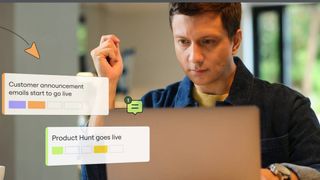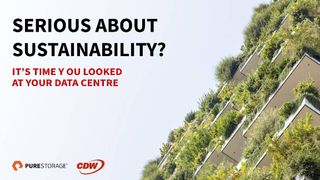The WordPress CMS isn't insecure – you are!
Another vulnerability in WordPress is bad news for the CMS platform

The latest in a long line of headlines has highlighted yet another WordPress flaw this time a million sites have been put at risk by a vulnerability introduced by another poorly coded plugin, with an analytics tool using a stupidly guessable secret key.
As a result, warnings have been flying around about how insecure WordPress is and how it's time to get real and move into a more secure Content Management System. The only getting real that needs to be done is in the mindset of those who are way to quick to blame WordPress and way too slow to look in the mirror where the true responsibility may well be reflected.
WordPress does a pretty decent job of being secure out of the box. That is, when it's used in a properly configured and up-to-date default installation without third-party code. Hopefully we can all agree on that, and also agree that adding third-party code or plugins doesn't automatically equate to a huge hole being driven through your organisation's defences. That said - and I've said it before and I make no bones for saying it again - WordPress itself is not insecure, but the plugins that you choose to use with it may be.
According to Stephen Coty, chief security evangelist at Alert Logic, WordPress has "always done a very poor job of scanning plugins that the community creates and uploads" which means a malicious actor might create a functional and popular plugin with a backdoor that goes unnoticed.
And that's seen with other companies. Apple operates a walled garden when it comes to the iOS apps people can use, whereas Google maintains a hands-off approach to the Android App Store. Unsurprisingly there have been plenty of cases of malicious Android apps, and relatively few iOS ones.
However, that changes nothing. Given that most of the WordPress plugins that are problematical employ pretty basic security getarounds, and given that most WordPress sites are run on easily hardened LAMP stacks for enterprise usage, it's something of a brain-squeezer that we are talking about it at all.
Here's the bottom line: if you were to apply the same level of due diligence regarding security to plugins as you likely did when considering which CMS platform you were going to use, then your business would be much more secure as a result. The same holds true for applying updates: you need to run updates for the WordPress platform as well as any patches, themes or plugins you've installed.
Get the ITPro. daily newsletter
Receive our latest news, industry updates, featured resources and more. Sign up today to receive our FREE report on AI cyber crime & security - newly updated for 2024.
Security is your responsibility it's time to take it into your own hands.
Davey is a three-decade veteran technology journalist specialising in cybersecurity and privacy matters and has been a Contributing Editor at PC Pro magazine since the first issue was published in 1994. He's also a Senior Contributor at Forbes, and co-founder of the Forbes Straight Talking Cyber video project that won the ‘Most Educational Content’ category at the 2021 European Cybersecurity Blogger Awards.
Davey has also picked up many other awards over the years, including the Security Serious ‘Cyber Writer of the Year’ title in 2020. As well as being the only three-time winner of the BT Security Journalist of the Year award (2006, 2008, 2010) Davey was also named BT Technology Journalist of the Year in 1996 for a forward-looking feature in PC Pro Magazine called ‘Threats to the Internet.’ In 2011 he was honoured with the Enigma Award for a lifetime contribution to IT security journalism which, thankfully, didn’t end his ongoing contributions - or his life for that matter.
You can follow Davey on Twitter @happygeek, or email him at davey@happygeek.com.





